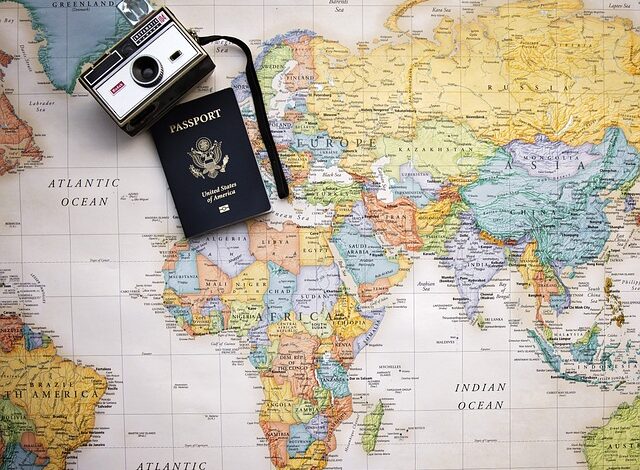How to Get Travel Insurance for a Honeymoon in the UK

Introduction
Planning a honeymoon is an exciting part of any couple’s journey after tying the knot. Whether you’re exploring the picturesque countryside, visiting historic landmarks, or enjoying the vibrant cities of the UK, having travel insurance ensures that your romantic getaway remains stress-free. Even though the UK might seem like a safe destination, unexpected events such as medical emergencies, trip cancellations, or lost luggage can still occur. This guide will walk you through everything you need to know about getting the right travel insurance for your honeymoon in the UK.
Why Do You Need Travel Insurance for a Honeymoon?
While the UK is generally considered a safe and well-connected destination, there are several reasons why travel insurance is essential:
- Medical Emergencies : Although the UK has a robust healthcare system (NHS), non-residents may face significant costs if they require emergency treatment.
- Trip Cancellations or Interruptions : Last-minute changes due to illness, family emergencies, or other unforeseen circumstances can disrupt your plans.
- Lost or Stolen Belongings : From passports to expensive jewelry, losing personal items during your trip can be both stressful and costly.
- Travel Delays : Flight delays or missed connections can lead to additional expenses like accommodation and meals.
- Adventure Activities : If your honeymoon includes activities like hiking, cycling, or water sports, specialized coverage may be necessary.
With these risks in mind, securing comprehensive travel insurance becomes a priority for ensuring a smooth and memorable honeymoon experience.
Types of Travel Insurance Policies
Before purchasing a policy, it’s important to understand the different types of coverage available:
1. Single-Trip Insurance
- Ideal for couples planning a one-off honeymoon trip.
- Provides coverage for a specific duration, usually up to 31 days.
2. Multi-Trip Insurance
- Suitable if you plan to take multiple trips within a year (e.g., pre- or post-honeymoon mini-breaks).
- Often more cost-effective than buying separate single-trip policies.
3. Specialized Honeymoon Insurance
- Some insurers offer tailored packages specifically designed for honeymoons.
- These policies often include extras like wedding gift protection, honeymoon cancellation due to vendor issues, or coverage for newlywed-related mishaps.
4. Annual Multi-Trip Insurance
- Best for frequent travelers who want year-round coverage without needing to purchase individual policies each time.
Key Features to Look For in a Honeymoon Travel Insurance Policy
When choosing a policy, consider the following features to ensure adequate protection:
- Medical Coverage
- Ensure the policy covers emergency medical treatment, hospital stays, and repatriation if needed.
- Check whether pre-existing conditions are included, especially if either partner has ongoing health concerns.
- Cancellation and Interruption Protection
- Covers non-refundable bookings if you have to cancel or cut short your trip due to unforeseen events like illness, bereavement, or severe weather.
- Baggage and Personal Belongings
- Protects against theft, loss, or damage to luggage and personal items.
- Look for policies with sufficient limits to cover valuable items like engagement rings or cameras.
- Travel Delay Compensation
- Offers reimbursement for expenses incurred due to delayed flights or missed connections.
- Adventure Activity Coverage
- If your itinerary includes adventurous pursuits like hiking in the Scottish Highlands or surfing in Cornwall, confirm that your policy extends to such activities.
- Wedding Gift Protection
- Some honeymoon-specific policies provide coverage for stolen or damaged wedding gifts brought along on your trip.
- 24/7 Emergency Assistance
- Access to a helpline for support during emergencies, including legal advice or help finding local medical facilities.
Steps to Purchase the Right Travel Insurance
Step 1: Determine Your Needs
- Assess the length of your honeymoon, planned activities, and potential risks.
- Make a list of must-have features (e.g., medical coverage, baggage protection).
Step 2: Compare Quotes Online
- Use comparison websites to evaluate premiums, coverage levels, and customer reviews.
- Popular platforms in the UK include Compare the Market, MoneySuperMarket, and Confused.com.
Step 3: Read the Fine Print
- Carefully review policy documents to understand exclusions, limitations, and claim procedures.
- Pay attention to details like excess amounts (the amount you pay before the insurer covers the rest) and geographic restrictions.
Step 4: Consider Add-Ons
- Opt for optional extras like gadget insurance, rental car protection, or enhanced cancellation benefits if relevant to your plans.
Step 5: Purchase Early
- Buy your policy as soon as you book your honeymoon to maximize coverage. Many policies only cover unforeseen events that occur after the purchase date.
Step 6: Keep Documentation Handy
- Save digital copies of your policy certificate, contact numbers, and claims process instructions. Share them with your travel companion(s).
Tips for Saving Money on Travel Insurance
- Bundle with Other Services : Some travel agencies or credit card providers offer complimentary or discounted insurance when booking flights or accommodations through them.
- Avoid Over-Insuring : Choose coverage limits that match your needs rather than opting for overly generous policies.
- Increase Excess Amounts : Agreeing to pay a higher excess can lower your premium, provided you’re comfortable with the added responsibility.
- Use Loyalty Discounts : If you’ve previously purchased insurance from the same provider, inquire about loyalty discounts or renewal offers.
- Check for No-Fly Options : Some policies waive premiums if you don’t end up traveling due to unforeseen circumstances.
Common Mistakes to Avoid
- Underestimating Risks : Don’t assume that domestic or nearby destinations are risk-free. Accidents and disruptions can happen anywhere.
- Ignoring Pre-Existing Conditions : Failing to disclose health issues upfront could invalidate your policy later.
- Skipping Activity-Specific Coverage : Adventure sports or unique experiences may not be covered under standard policies unless explicitly stated.
- Not Reading Terms Clearly : Misunderstanding what’s included or excluded can lead to denied claims.




